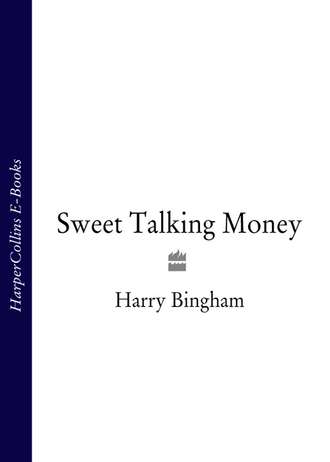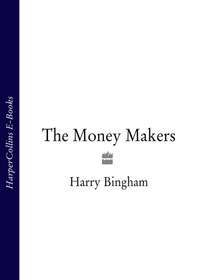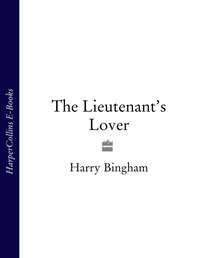
Полная версия
Sweet Talking Money
‘I agree,’ she said, ‘we need the money. But not from Milne. Not now. Not ever.’
SEVEN
1
The immense and mouldering college barge which had been sitting in the main boathouse had been hauled down the slipway to sink or swim, and after a brief hesitation, it had swum quite happily, moored up against the side of the boathouse, slapping against the wood at every change in the wind. It made a nice place to sit and watch life, and Bryn sat on the roof of the barge, protected from the green mould by a dustsheet left by Dai.
Meg, Bryn’s former secretary and a bouncy brunette who was just a few years younger than him, came round the corner of the boathouse, down the jetty, and scrambled breathlessly on to the roof. ‘Coffee,’ she said, dumping a bag down beside her. ‘And yes, it is from the Italian shop up the road, and yes, it is a double espresso, and yes it is continental roast, and yes, you are the most finicky coffee drinker in the whole world ever.’
Bryn took the coffee with gratitude, and began telling her about Cameron’s refusal to take money from the venture capitalists.
‘Twenty million quid,’ said Meg. ‘She tore it up?’
Scraps of the ripped-up offer letter still floated down by the side of the barge, trapped in a debris of floating twigs, plastic bottles and a kind of nameless oily scum. Bryn gestured at it with his coffee cup.
‘There it is. All gone. Shame.’
Meg had tried lying back on the roof to catch some early spring sun, but the sun was so feeble it was scarcely worth catching, and her head had poked over the edge of the dustsheet, quickly gathering an assortment of moulds, lichens and algae. Picking the green bits from her hair, she mused aloud. ‘Cammie had a point, though. It would have been gutting if you’d succeeded with everything, just for old Malcolm Milne to sell the whole kit an’ caboodle to Corinth.’
Bryn smiled wryly. ‘Right. Not that gutting, since I’d stand to make a bloody fortune from the sale. Besides, there’d be no reason for Milne to sell to the bad guys. It’s not as though he cares one way or the other.’
‘Cammie’s point exactly, sweetie.’ She looked at the green stuff collected in her hand and hurled it at a gull, missing by miles. She continued to gaze after it, then sprang to attention. ‘What the hell is that?’ she demanded, jabbing a finger downstream past the red-brick wharves towards the empty trees of Bishop’s Park.
‘It’s a tree, Meg, a willow tree.’
‘It’s what’s in the tree, matey. Look.’
Bryn rolled on to his elbow. In the bare branches of the willow tree, there was a blue-green smudge. ‘Bloody hell, you’re right. It’s a parrot.’ The blue-green smudge nodded its head and began to preen, as though to confirm the sighting.
‘Must have escaped,’ she said. Then, ‘Good on you, parrot!’ she screamed.
Bryn shook his head. ‘Actually, I doubt it. They’re meant to be quite common, apparently. Escaped parrots started breeding and London’s warm enough these days for the birds to survive through the winter. I’ll bet you we’re looking at a genuine wild parrot.’
‘Wild? Who’s wild? I don’t call you a wild Welshman, do I? It’s free, a free parrot.’
Bryn laughed and swigged at his rapidly cooling coffee. Meg continued gazing, mesmerised, at her find.
‘It’s a pity you had to go elsewhere for money,’ she said reflectively. ‘I know you. You wouldn’t sell out to the bad guys, however much you think you would.’
‘It’s a pity I’m not a multi-millionaire, Meg.’
She looked sharply at him, about to cross the unmentionable gap between banking secretary and banking boss. ‘You must be pretty close, though,’ she said. ‘Big swinger at Berger Scholes and all that.’
Bryn sighed. ‘I’ve had to split things with Cecily. She gets all the savings and most of the furnishings of any quality. I get the house, my deferred bonuses – ha, bloody ha – and sod all else. I’m not far off being a pauper.’
‘What’s ha bloody ha?’
‘All gone, Megsy, m’dear. You forfeit your deferred bonuses if you leave. I left. I forfeited them. Three quarters of a million quid.’
‘Bloody hell, you’re a madman.’ Meg pondered the notion of having three quarters of a million pounds and then losing it. ‘I wouldn’t have left if you’d dragged me by my hair. I’d have glued myself to my desk. I’d have nailed my –’
‘Yeah, well, your sympathy is duly noted.’ A pause. ‘That just leaves my house. It’ll fetch getting on for a million, though I had sort of planned to live in it … Anyway, even a million’s no good. This company needs way more than that.’
Meg rolled on to her belly, poking her head over the side of the barge, staring at her reflection in the turbid waters. ‘Why not borrow the money? Then we wouldn’t have to have horrible investors, just horrible banks.’
‘You can’t simply go out and borrow. You have to have assets to borrow against. If you don’t have assets, you have to have cash flows, revenues, profits. Old fashioned things like that.’
‘Well, there you go, then.’ Meg rolled round the other way and sat up. ‘First get some cash flows, then borrow some money. Honestly, some banker you are.’
Bryn swirled the last of his coffee round his cup. It was stone cold, but he drank it anyway. For the past forty minutes, the sun had shone like a pale disc through cloud, and the day was too cold for long periods on top of dank and festering barges. If he was a parrot, he’d stay indoors. He stood up to go.
‘Thanks for the brainwave, Meg. The Schoolroom works on rats. How about we charge them …’ As his voice tapered off, he suddenly froze. ‘By God, though, you never know …’ His posture changed; became charged with energy. At the end of the barge, there was a dried-out tin of paint left by one of Dai’s workmen. Bryn repositioned the tin with care, and took a few paces backwards. ‘That pleasure boat, there. One minute to go, two points needed for victory. Bryn Hughes to take the kick.’
Meg looked at the launch making its way upriver, twenty yards distant, its roof dotted with passengers. ‘What are you–?’
But Bryn ignored her. He checked his pacing and settled his eye on the distant boat. Taking a quick run up, he gave the tin an enormous kick and watched it sail in a huge arc into the air, narrowly clearing the upper deck of the startled boat. The splash into the water on the other side was hidden from view. A couple of passengers who’d been watching cheered and waved. In an imaginary stadium somewhere, fifty thousand Welshmen stood and applauded.
‘Is he Bryn Hughes, or is he Neil bloody Jenkins?’
‘Neil who?’
But he was off, leaping off the boat, on to the bits of planking which acted as a jetty, and on into the boathouse yard.
‘Cameron!’ he roared. ‘Cameron, Kati!’
Meg stood up. The wind was chilly. Her boss was mad. She tipped her coffee away and began to thread her way through the surrounding wharves towards the willow tree, watched by its exotic resident. ‘Hello, parrot,’ she said.
2
When Meg caught up, Cameron and Kati were already jammed into a pair of seats, watching Bryn as he strode around. Meg caught sight of the handsomest of Dai’s workmen, winked at him and sat down.
‘So that’s the whole idea,’ said Bryn. ‘We’re going to use your know-how to make some money, right here, right now. We pop the research and development outfit under the wing of a parent company, and use the parent company to generate cash. We’ll use the cash to fund our research, and once we’re making some serious money, we’ll go out looking for some loans as well. All we need is a way of putting your existing knowledge to commercial use.’
Ten minutes earlier, Cameron and Kati had been involved in a deep conversation about new methods of peptide fractionation. Since Bryn had whirled in like a storm demon, shoving them into chairs and haranguing them, they had understood virtually nothing. They exchanged glances.
‘You want us to sell something?’ asked Kati.
‘Yes. No. Well, OK, yes and no.’ Bryn took a deep breath and another step backwards into the realm of the intelligible. ‘Look, between the two of you, you know an awful lot about viruses and an awful lot about viral illness. Stuff which no one else knows.’
‘Loads of people know parts of it, but maybe no one knows all of it. No one except us. Right,’ said Kati.
Cameron sat imprisoned in her chair, writing chemical equations in biro on her white labcoat, and waited for something that Bryn said to make sense.
‘Good.’ said Bryn. ‘Exactly. Now I know for a certain fact that you can put that knowledge to use. I went to Cameron with flu and she cured me, no messing.’ Cameron groaned in pleasure, as she found what she was looking for in her chemical equations, then looked up to find everyone looking at her. ‘Flu, did you say? Sure, but that was easy. You were an easy case. We couldn’t begin to guarantee those kinds of results.’
‘No, I know that, but patients don’t need guarantees, they just need the best treatment available. That’s you. You and Kati. You two, plus other doctors who we’ll hire and train in your techniques. Obviously, we wouldn’t be doing the full Immune Reprogramming at this stage, we’d use conventional drug treatment, supplemented by everything else you guys thought was useful. As time goes by, and your research matures, your treatment methods will improve too. We won’t just have research papers to prove our results, we’ll have patients. Hundreds of them.’
Cameron wasn’t looking at her equations now, she was staring at Bryn. ‘You think I ought to spend time with patients?’
‘Yes. You spend time on them. They spend money on you. That’s business.’
‘But my research? Isn’t that more –’
‘More important? Yes. But we need to pay for it. This is a way to pay for it.’
‘And when you think about it,’ said Kati, ‘we’ve always wanted to have better access to patients. That way we can watch the clinical progress of disease, not just its blood chemistry.’
‘Uh, ‘s’true,’ said Cameron, still amazed. ‘But you know, Bryn, can you see me with patients? I mean, when you came to see me, I hit you.’
‘Did you?’ said Meg. ‘Good for you.’
Bryn ignored her. ‘OK, no hitting. No assaults of any kind. No doodling on your labcoat while your patient is telling you their life story. And we’ll make sure Kati or someone is there with you, so if you do accidentally lay into someone, there’s someone to say sorry.’
‘Uh, OK,’ said Cameron, still bemused. ‘Patients? Sure. Why not?’
3
And finally that week, a minor incident, hardly worth the mention.
Cameron’s father, a mathematician at Illinois State University, was extremely fond of Lewis Carroll. Following a suggestion of Bryn’s, Cameron bought him an expensive but special birthday gift: some early editions of Alice in Wonderland and Alice Through the Looking Glass. Sending them special delivery, she dispatched them in good time for his birthday, but when the day arrived, the books had not. Another week or two passed, the gift was still mislaid, and Cameron ended up claiming compensation for the full amount from the Post Office. She didn’t mention the loss to Bryn or anyone else, not liking to appear naive or incompetent in her dealings with the outside world.
And that was all. A minor incident, hardly worth the mention.
EIGHT
1
For businesses as for people, childhood is meant to be a time of happiness and freedom from care. The funding is meant to be in plentiful supply, the business concept is still untarnished by excessive contact with reality, moods are good and tempers are sunny.
Meant to. The emphasis is on meant to. That’s not always how it works.
2
The boathouse was finished off. It looked glorious – better than glorious. The white-painted interior turned the palest spring light into a glory of watery fire, with ripples from the Thames reflected upwards through huge waterside windows on to the beams and trusses of the vaulted ceiling. A horseshoe of consulting rooms hung like a mediaeval minstrels’ gallery around the former boathouse, connected by a sweeping spiral staircase of natural oak. Round the back, Cameron had her laboratory, her library, her office up in the tower, her storeroom, and all the other requisites of a serious research programme. The building was a joy to look at and a joy to use.
Ordinarily, Dai and his crew would have been exhilarated at the end of a job. But as it turned out, the grandstand tickets supplied by Bryn had magnified a dismal Welsh performance in the Six Nations rugby to a disaster of such epic proportions that one of Dai’s men had looped a rope from the ceiling rafters and tied a noose in the end. A joke, of course, but only just.
Meanwhile, Bryn had put his house on the market. The estate agent had confidently valued it at a round million, delighting Bryn, who had expected less. Unfortunately, as things turned out, it was Bryn that proved to be right. When the buyers came to view, the house was still full of at least six large Welsh workmen, each of whom was like a kind of Shake-n-Vac dispenser for builders’ dust, and the kitchen, living room, bathroom, and bedrooms were full of enough beer cans to threaten a glut on the aluminium market. Offers when they came were scanty and low, and Bryn ended up settling for eight hundred and fifty, pleased to get even that.
‘Where are you going to live now?’ asked Meg.
Brandishing a wire brush, a boiler suit, and twenty-five litres of white paint, Bryn pointed from the reception room windows. Seagulls wheeled in the empty sky above while, beneath them, the barge they shat on, like a tarnished crone, swayed uneasily on the oily water.
‘You’re kidding,’ said Meg.
3
Like a cross-Channel swimmer hesitating at the waterside, the first two weeks had been spent with Cameron and Kati locked in anxious theoretical discussions about the best way to handle patients.
‘It’s a challenge for us,’ admitted Cameron during a rare interlude. ‘Rats can’t launch malpractice suits, and if you get it wrong, you don’t have to spend too much time worrying if someone else could have done it better. Patients are different. I mean, after all, they’re people.’
Kati’s big spaniel eyes blinked slowly in agreement. ‘On the other hand,’ she said, ‘it’s true, we do know a lot about nutrient therapy. Like, a lot. Combining that with conventional medical care could be of incredible benefit. But still …’ She shook her head, unhappy with the responsibility that came with looking after people instead of rats.
‘Maybe we should focus on a particular disease group,’ said Cameron. ‘Hepatitis A, perhaps. Even flu.’
‘Or how about just one patient a month?’ queried Bryn sarcastically. ‘Have you actually made any progress at all? Apart from working out that patients are people, that is.’
‘Got anywhere?’ repeated Cameron. ‘Sure. We’ve identified some real issues, a laundry list of points to get thinking about.’
‘OK,’ interrupted Bryn. ‘You know what? I think you should start seeing some patients, and soon. We’ll open for business on Monday.’
4
On the following Monday, they threw their doors open to a wondering public, ready for all comers. On Monday evening, they closed them again, not having admitted a single patient; no one except a lady who’d wandered in asking for directions, and a bloke from the Eternity Wharf industrial estate who’d cut his finger and wondered if they had any plasters.
On Tuesday it was the same, except that no one asked for directions, and the bloke next door now had a packet of Elastoplast and no further need of medical attention.
On Wednesday, Bryn got serious about advertising.
5
London is an expensive place in which to advertise.
You can buy space alright – space on hoardings, space in papers, space on the tube trains, space on radio, space on TV, space in the freebie magazines shoved in your face at Underground stations, space on those green or pink photocopied fliers that crowd London’s air like pigeons. There’s no shortage of outlets for your advertising pound, but that in itself becomes the problem. Londoners close off from advertising. They develop a kind of sight-blindness which cuts out the excess of noise. To catch their eye and hold it, to keep their reading gaze for enough seconds to transmit the required information, you need to buy a mountain of space, an unmissable island in the info-cluttered sea.
‘Damn it,’ said Bryn, slamming down the phone. ‘How the bloody hell do people get started round here?’
He picked up the sheets with his advertising budget and began to redo the numbers, trying to trim a number here, cut a figure there, knowing in his heart he should be doubling the numbers, not halving them. He was sitting with Meg in the new reception area. A cleaned-up boat hull topped with waxed oak boards formed a reception desk and Meg sat behind it reading a gossip magazine. ‘Maybe I should retrain as an aromatherapist,’ said Meg. ‘Most of the calls we get are from people who hope we do aromatherapy and that thing they do with feet. Foot poking.’
‘We’ll get patients. Just a question of time.’
‘Reflexology,’ said Meg. ‘That’s it. What you need, matey, is a bit of free publicity.’
‘Thanks, Meg. I’d stick to foot poking if I were you.’ Bryn’s voice skirted an edge of irritation. He wasn’t angry at Meg but he was frustrated with the way things were going and was worried that he’d miscalculated badly.
‘No, really. I mean it,’ she said, returning to her magazine. For a few minutes there was silence, then Cameron wandered in, distractedly, looking for Kati. Meg interrupted her.
‘Hey, Cammie. How good are you at fixing mysterious viral illnesses which have baffled literally dozens of America’s best doctors?’
Cameron shrugged. ‘Depends on the virus, depends on the blood.’
Meg passed over her magazine and Cameron read briefly before commenting, ‘Probably virally induced mitochondrial collapse. Enteroviruses, one of the retro-viruses, could be anything. Result is what we’d call CFIDS, what you guys would call ME. It’s a serious illness, in bad cases very nasty indeed.’
‘Can you fix it?’
Another shrug. ‘Look, with time and resources, I reckon Kati and I could fix pretty much anything. But we’ve only got three patients in the whole of next week and somehow I don’t think she’s one of them.’
Meg passed her magazine over to Bryn.
‘Free publicity,’ she said. ‘Always listen to your Auntie Meg.’
NINE
Конец ознакомительного фрагмента.
Текст предоставлен ООО «ЛитРес».
Прочитайте эту книгу целиком, купив полную легальную версию на ЛитРес.
Безопасно оплатить книгу можно банковской картой Visa, MasterCard, Maestro, со счета мобильного телефона, с платежного терминала, в салоне МТС или Связной, через PayPal, WebMoney, Яндекс.Деньги, QIWI Кошелек, бонусными картами или другим удобным Вам способом.








